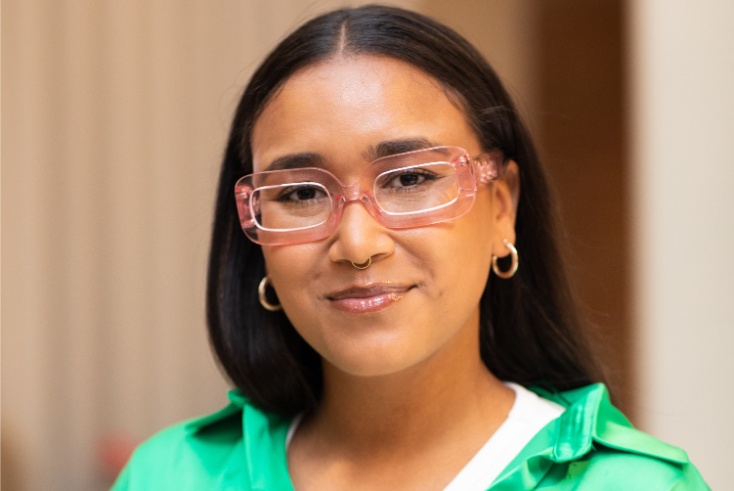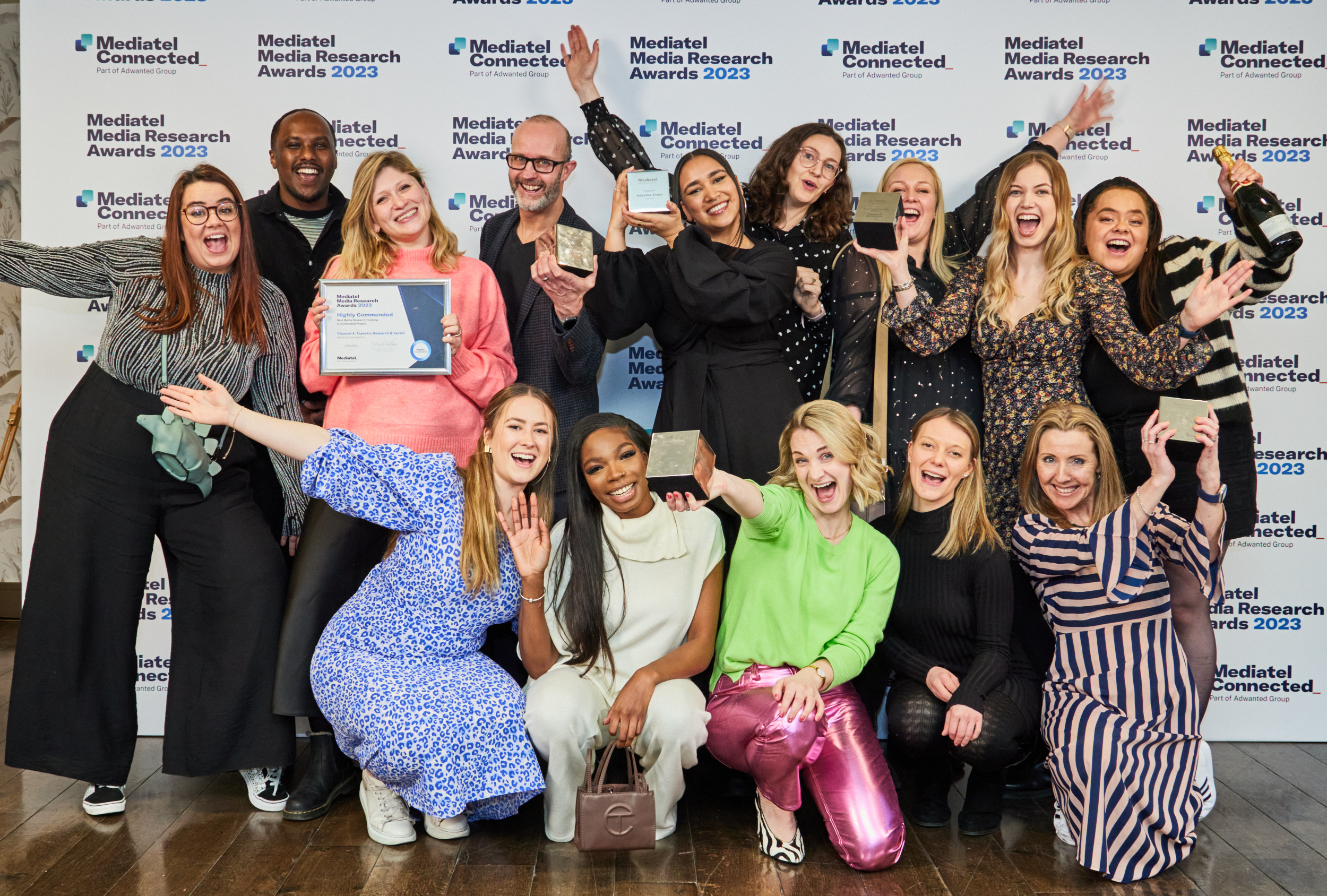Channel 4’s rising star: media research must drive change

The Media Leader Interview
This year’s Rising Star from the Mediatel Media Research Awards, Katya Des-Etages, shares her perspective on why research matters, her mission to improve inclusion and how industry accolades benefit everyone.
Katya Des-Etages had her career “wake up moment” during lockdown.
The senior research executive at Channel 4 has now been working at the broadcaster for more than two years and this year won the Rising Star at the Mediatel (now Adwanted) Media Research Awards for her work on projects like Mirror on the Industry, Black to Front and Black Owned Businesses.
She says she was always wanting to understand people and cultures from a young age, which mostly came from wanting to better understand the blend of cultures in her background; Trinidad, Yugoslavia and Burma.
This led Des-Etages to initially study Anthropology and later when she finished her Masters in psychology, she thought she would become a psychologist (something her Dad had said she would become from the age of 12 because of her knack for impartial advice), but then, like so many, she “fell into media research”, specifically wanting to find out more about how media and technology shape culture.
She spent two years working for eye-tracking attention measurement company Lumen Research, and when lockdown started in 2020 realised she liked media research but wanted to have more purpose.
“I want to make sure that the research that I’m doing is actually driving some change and something I’m super passionate about is diversity and inclusion,” she explains. “Life is short. It was Covid. Everybody was struggling with their mental health and I was not exempt from that at all. I thought I need to do something that’s actually good and that’s going to give me passion and drive.”
She started applying for social impact research positions, and then interviewed for a research executive position at Channel 4 who, as a media brand, she saw as championing diversity and inclusion and wanting to improve representation on screen.
Des-Etages went into her job interview and, even though it was not part of the job description, said to her interviewers anything she could do to “have the smallest drop of an impact” in improving representation and portrayal would make her career.
Now one of the primary focusses are projects on diversity and inclusion.
‘Shocking research’ shows there is still so much work to do
When she joined the broadcaster she “got stuck in” to her first project; working on its annual Mirror on the Industry annual research which started in 2018.
She describes it as “a deep dive” into the levels of representation of different groups and society, specifically focussing on minority and marginalised groups, answering questions like what is the percentage of ads that represent disabled people and how different groups are portrayed. Some have seen positive shifts since the initial wave of research, while others have not seen any movement at all, she reveals.
“It was really a shocking piece of research for me because I realised there is still so much work to do, which is fulfilling in a way because it means there is still an opportunity to create amazing work and there’s an opportunity for me to go and educate people,” Des-Etages remarks.
She notes the research shows there have been specific moments in time when brands have upped their communication for specific groups, for instance there was “a massive spike” in representation of Black people after the Black Lives Movement in 2020.
However, while Des-Etages recognises this “wake up” moment leading to progress from brands, she urges for more consistency from them to keep on improving levels of representation and portrayal.
Within her first few months in the role she also worked on impact measurement on Channel 4’s Black to Front Project, which she calls “a massive moment in history”, and after a year in her role she worked on another initiative researching how the broadcaster, media and advertising industry can as a whole better support Black-owned businesses.
She says everyone that worked on that research project was passionate about the issue, but that it “particularly resonated” with her as both of her parents are Black multi-ethnic business owners themselves.
The Rising Star award ‘a massive door opener’
These are three projects she is proudest of and because of this work Des-Etages’s manager and team nominated and encouraged her to go for the Rising Star award.
After that win she has also been inducted into The Future 100 and received a nomination for the Market Research Society (MRS) Equality, Diversity and Inclusion Changemaker Award.
She explains how valuable the Rising Star Award was to her: “I’m not the best at speaking about my achievements and there’s so much power in, where you can, collecting accolades that speak on your behalf — they are just massive door openers.
“I can’t tell you the amount of things that have happened since then, things I would have not even dreamed of two-and-a-half years ago, where people are now asking me for my opinion and to sit on judging panels and really be involved in the industry, so it’s definitely added a huge amount of value to the trajectory of my career.”

She says there are “multi-layered reasons” why it makes sense to nominate colleagues for the award and that it is key to notice and celebrate talent.
“There isn’t a good enough reason not to [nominate someone]. It benefits the individual and their career, but it also benefits your team, it brings up morale, it benefits the company, it helps with your client relationships so they know they’re working with people that are making a difference to the industry.”
She adds that nominations for these kind of awards means people feel a real sense of pride, engagement and interest in their work, and that it gave her a chance to acknowledge her progress up to that point instead of feel like she “constantly had to prove” herself.
Des-Etages says it has validated her purpose in her job and the industry and she is more optimistic about her future career.
“I’m a rising star, I’m not the North Star yet, so the future for me is to continue challenging myself and learning from the wonderful constellation of people around me. I’d love to be a key player in helping people to improve diversity and inclusion in their comms and their content — that’s the end goal for me within the media industry.”
The Mediatel Media Research Awards have been renamed to the Adwanted Media Research Awards. They will open for entries across 16 categories on Monday 4 September 2023.
Entries from all organisations are welcome; covering research delivered to clients between 1 September 2022 and 31 August 2023, unless otherwise stated.




